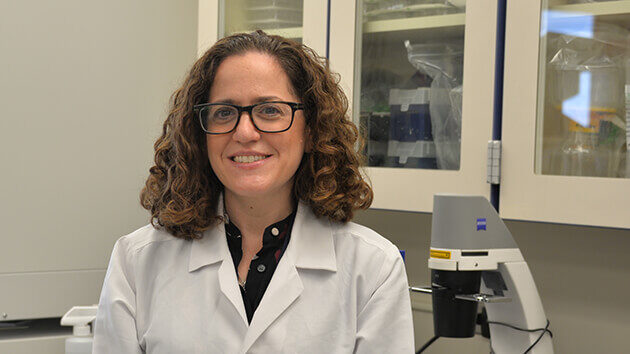Forums Highlight Bench to Bedside Research Collaborations

A new series of forums is highlighting the translational research partnerships within Albany Med that are expanding our understanding of diseases and leading to new treatments for them.
Translational research draws on basic science discoveries made in the lab (at the “bench”) to develop practical treatments and therapeutics that can be used in the clinic (at the “bedside”).
“For basic scientists, being attached to a hospital opens up tremendous opportunities for collaboration that aren’t available elsewhere,” said Gabrielle Fredman, PhD, associate professor in the Department of Molecular and Cellular Physiology, who organized the series. “The same is true for our clinical colleagues who have access to research labs and equipment through the College that they wouldn’t otherwise have.”
The forums, which began in April, are held on the first Thursday of the month from 4 to 5 p.m. in Huyck Auditorium and via Webex.
In May, Edward Wladis, MD, chair of the Department of Ophthalmology and chief of service for ophthalmology, and Alejandro Adam, PhD, associate professor of MCP, discussed how they’ve collaborated to develop a topical cream to treat ocular rosacea, which is now in clinical trials.
Dr. Wladis explained that, after identifying a clinical problem that was particularly vexing, it has been especially rewarding to work toward a solution with someone with shared interests and complementary expertise. “It’s also exciting to work on something that will make things better for patients,” he added.
At the June 2 forum, Harold Singer, PhD, professor and chair of MCP, and Loay Salman, MD, MBA, Thomas Ordway Distinguished Professor of Medicine and chief of the Division of Nephrology and Hypertension, will discuss the results of their research on arteriovenous fistula (AVF) failure. AVF is the preferred access for dialysis because of lower rates of complications, but failure is still common.
More than providing just an overview of the science and the process, the forums are showcasing the larger impact of these collaborations. For example, the partnership between Drs. Wladis and Adam has so far resulted in 13 published studies, five grants and awards, and one patent – which is owned by Albany Med. Eleven trainees, including MDDR students, residents, and fellows, have also been involved in their research.
“Our goal is to bring attention to these translational research studies, show how they directly impact our patients, and help open the lines of communication between clinicians and scientists to grow new relationships and collaborations,” said Dr. Fredman.